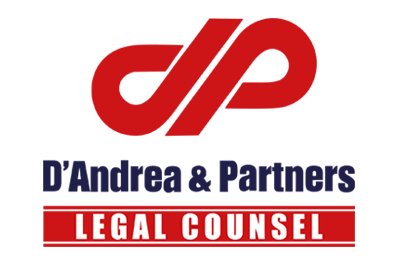So, you've left your job.
Congrats! There is no finer thing to do on earth than leave a job... But did you quit?
No?
Then you might be entitled to a nice severance package too. Cutting right to the chase, if you've been laid off or if your labor contract simply wasn't renewed, you're going to want to read on to see if you can get severance.
We're getting our information from D'Andrea & Partners, an international law firm that specializes in dispute resolution and corporate governance matters with a special focus on business relationships between Europe and Asia. D'Andrea & Partners is one of the few international law firms in China with authorization from the Ministry of Justice to duly operate as a representative office of a foreign law firm in this country.
Got some labor issues that you might need a lawyer's advice on? Get in touch with them here.
Disclaimer:
The article you are about to read has been written to provide you with simplified guidance on the relevant regulatory framework. Please note that this article is not intended to be a formal legal opinion, nor should it be considered as a comprehensive legal advice. Therefore, we strongly advise you to seek professional legal advice that is tailored to your specific needs and circumstances before making any decision or taking any action based on the information provided in this article.
In what situations are you eligible for severance?
Severance payment in China (遣散费) is a type of economic compensation paid to full-time employees who are laid off or terminated from employment due to various reasons regulated by art. 46 of the Labor Contract Law of the P.R.C.
Put simply, severance has to be paid if your employment gets terminated by your employer, or if your employer chooses not to extend your contract when it expires.
Or put even more simply: If you quit or choose not to renew your contract, you don't get paid severance.
Otherwise, you do.
The only exception to this is if your contracts get terminated because of serious violations of work rules — you are justifiably fired.
How are "serious violations of work rules" defined then?
Your employer can't just fire you claiming you've violated work rules and not pay severance. The key here is your employee handbook (员工手册) — and every company has one — that outlines employee conduct, including the consequences it has if an employee violates the rules. Usually, the handbook clearly describes a process that might lead to summary dismissal, and that process should include verbal and written warnings.
For example, the employee handbook might say "Smoking in the office is a serious offense" and then describe the repercussions; usually an oral warning, then a written warning, then a dismissal. If you did smoke in the office, and your employer did give you those warnings, they have the right to lay you off without severance.
Read through your employee handbook. The employer must prove that they have disclosed the content of the handbook to all employees, normally with a signed receipt.
Can my employer just put any terms into the handbook?
No. The content of the employee handbook must not be in violation of applicable labor law. For instance, labor law regulates maternity leave and pay. If an employee handbook would not allow employees to take paid maternity leave, that would be a violation of applicable labor laws, and a dismissal would be illegal. In the case of illegal dismissal, severance would be payable to the employee in the amount of 300% of the standard (see below).
Naturally, an employee handbook also cannot exclude severance pay. If it does, you might just sit on it, and then ask your employer for three times the severance because of this violation.
Should I get severance if I don't make it through probation ?
There is no general exclusion of the applicability of severance to employees under probation. However, during probation, the Employer may terminate the Employment contract (with three days notice) under an additional ground, which is "the employee fails to meet the requirements for employment during the probation period" (i.e., the employee is incompetent for the position). Normally, employees under probation are dismissed on this ground and this is a legitimate case where the severance may be excluded.
How is severance calculated?
The basis for the calculation of severance is the employee's average salary for the 12 months before the expiration or termination of the labor contract, which typically includes awards (e.g., bonus), allowances, and subsidies as stipulated in the contract. The applicable severance pay is equal to one month's salary for each full year of service. Any period of service that is less than a full year is considered a complete year if the actual period of service is more than six months, while the severance payable to an employee for any period less than six months is half of their monthly salary.
Severance is subject to two upper limits:
- One for the number of years of service and another for the wage amount considered in the calculation. Specifically, the number of monthly wages used in the calculation of severance is capped at 12 years;
- The wage amount is capped at 300% of the average monthly salary in the preceding year, as announced by the government at the municipal level directly under the central government or at the municipal level where the employer is located.
For example, in Shanghai, the latest published data by the Shanghai Human Resources and Social Security Bureau, released on June 22, 2022, shows the average monthly wage for 2021 to be RMB 11,396. This means that the current monthly wage amount for severance calculation in Shanghai is RMB 34,188.
My company says they are bankrupt and can't pay severance...
If a company closes down, either due to bankruptcy or because they got their business license revoked, they still have to pay outstanding salaries and severance. Often the shareholders of the company are personally liable for paying those up to the amount of registered capital.
In any case, where the employer does not pay, it is appropriate to start a labor arbitration to have the claim be assessed. Within an arbitration procedure, the Employer may be ordered to pay the outstanding remuneration and severance (in case of failure, enforcement is required).
I got laid off, and the company pulled my Visa, so I won't have time to fight for severance. Can I hire a lawyer to help me with this remotely?
It is always possible to engage a lawyer in China to represent a client in a labor arbitration or judicial proceeding without the need for the client to be in China. However, a notarized and legalized power of attorney is normally required in such cases. This means that the power of attorney shall be authenticated by a notary public or authorized authority in the country where the client resides and then legalized before the competent national authority and by the Embassy or Consulate of the PRC in the client's country.
Do I have to pay income tax on severance?
Short answer: depends on the situation of your dismissal.
When paying severance, it should be noted that the income tax payment will vary depending on whether the labor contract is terminated early or simply expires without renewal. If the labor contract is terminated early, severance (where applicable) taxes do apply.
In the case of the expiration of a labor contract without renewal, any applicable severance will be considered other personal income related to employment and will be incorporated into the comprehensive income for calculation and collection of individual income tax. It will not enjoy the tax exemption policy.
My employer says they will deduct my severance from my year-end bonus since that's a "voluntary payment". Can they do that?
The application of severance pay and its calculation is subject to legal requirements and cannot be lowered by the parties. As long as the conditions for the payment of severance pay are met, the employee has a legal right to receive a separate liquidation. Bonuses are allowances that are regulated solely by the labor contract, and the terms and conditions for their issuance are determined by the labor contract alone.
Basically, these are two different, unrelated payments.
However, if your year-end bonus is not covered in your contract as an automatic payout if objective conditions are met, the employer would be free to decide whether or not to pay the bonus. Severance payments are iron-clad and protected by labor law; bonuses are protected by what's in your work contract.

D'Andrea & Partners Legal Counsel
D'Andrea & Partners is an international law firm founded in 2013. They have a fairly diverse portfolio of clients ranging from large multi-nationals to small and medium enterprises. They do cross border M&A, dispute resolution and corporate governance matters with a special focus on business relationships between Europe and Asia. They...
































